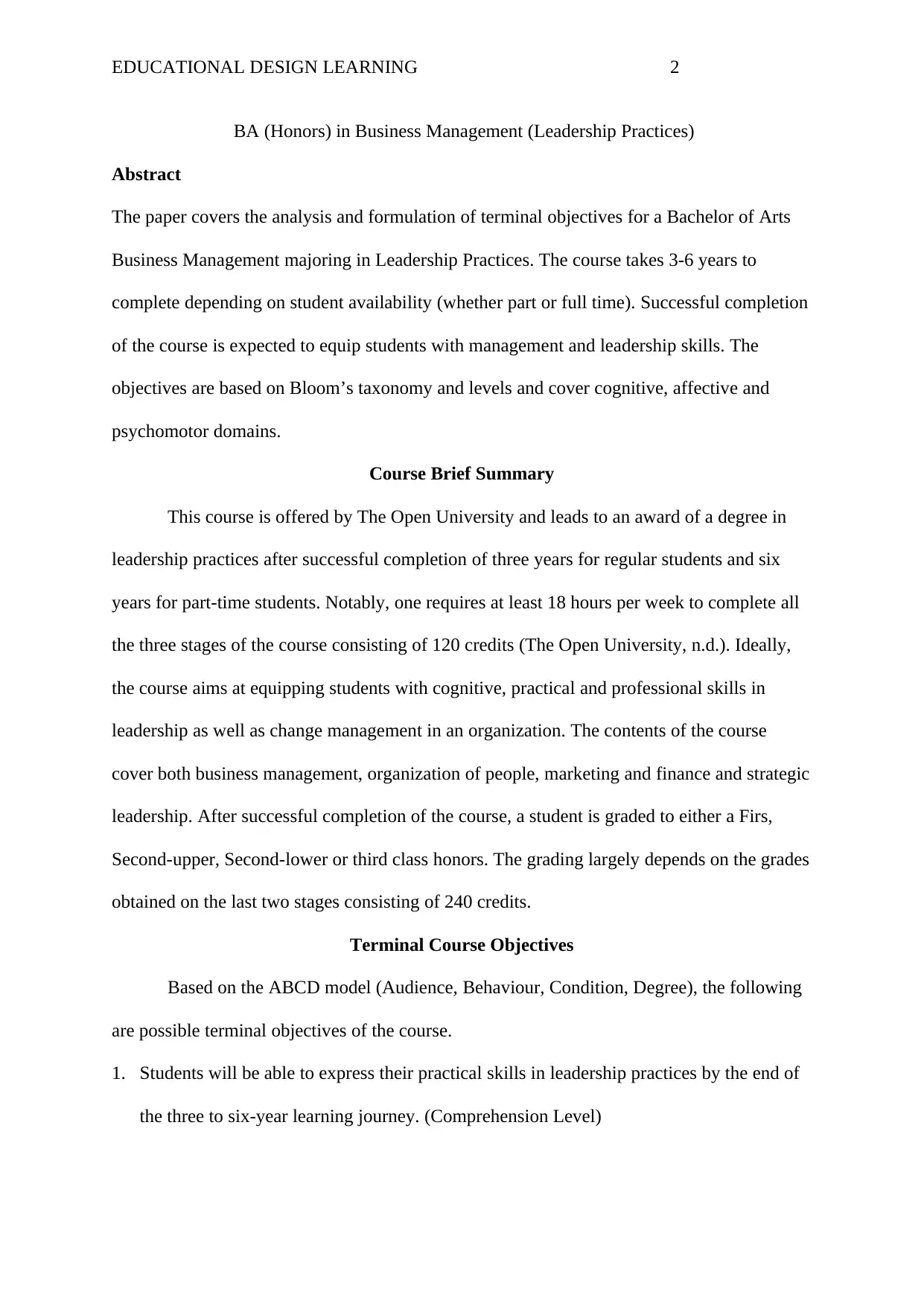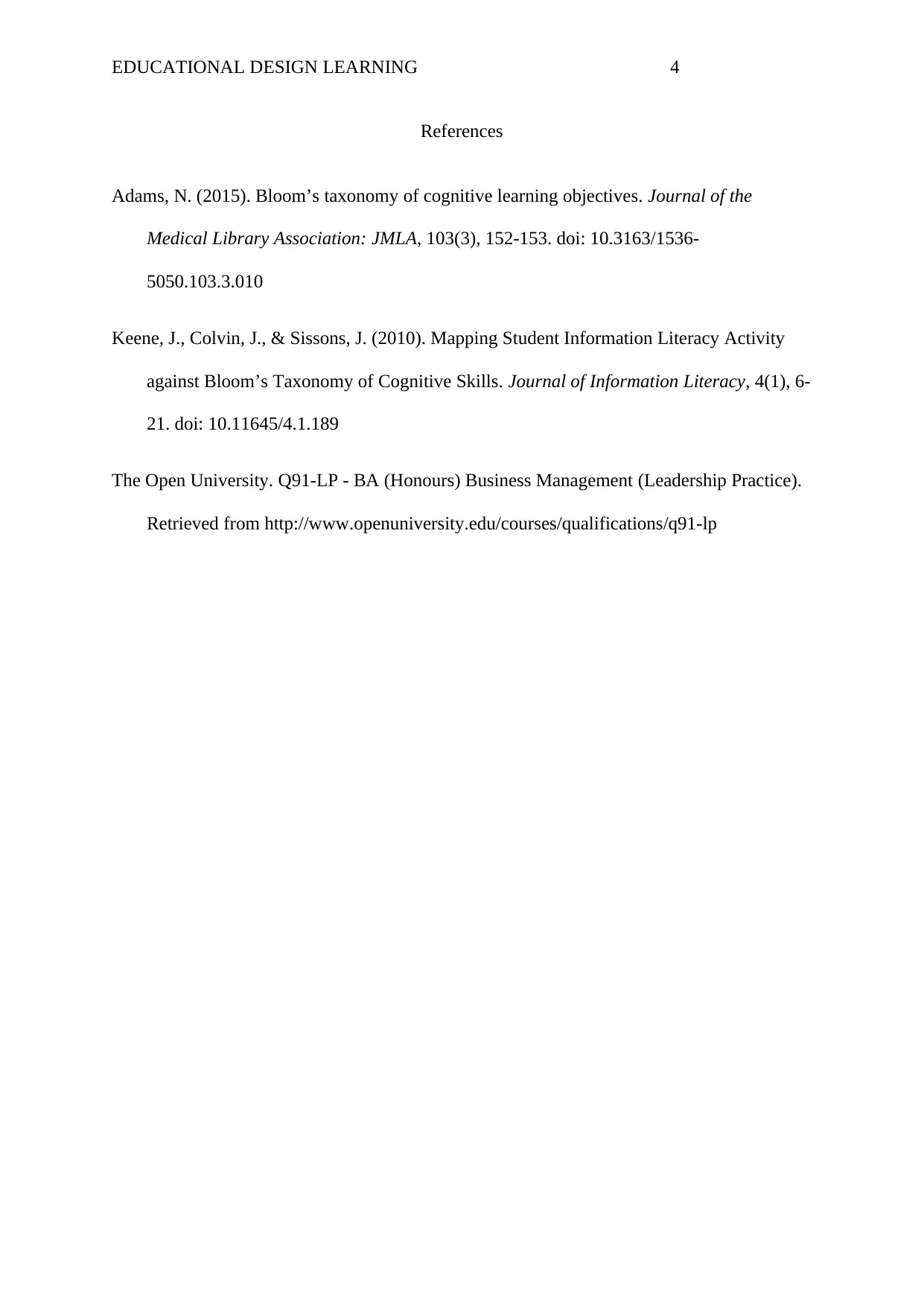Formulating Terminal Objectives: BA Business Management (Leadership)
VerifiedAdded on 2023/04/21
|4
|761
|216
Essay
AI Summary
This essay provides an analysis and formulation of terminal objectives for a Bachelor of Arts in Business Management, specifically majoring in Leadership Practices, a course offered by The Open University. The course, which takes 3-6 years to complete, aims to equip students with essential management and leadership skills. The objectives are structured based on Bloom’s taxonomy, covering cognitive, affective, and psychomotor domains. The essay details terminal course objectives using the ABCD model, including students' ability to express leadership skills, demonstrate understanding of leadership management, apply ethics, integrate management and leadership skills, and communicate effectively. Enabling objectives are also provided to support the achievement of the terminal goals, particularly focusing on differentiating between management and leadership. The essay emphasizes the importance of using measurable verbs and varying levels to ensure students acquire a diverse range of skills.
1 out of 4











![[object Object]](/_next/static/media/star-bottom.7253800d.svg)